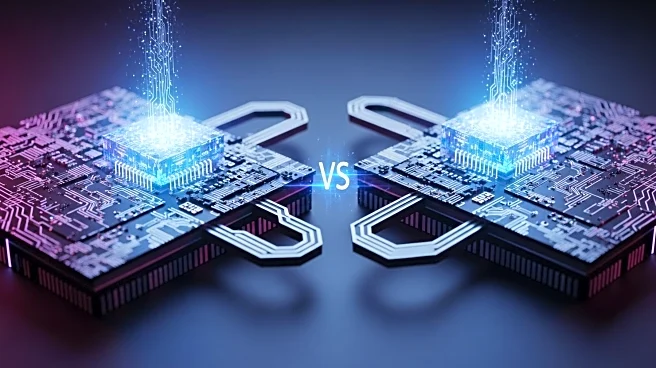What's Happening?
OpenAI's recent launch of the Sora app, which generates AI-created videos, has sparked controversy over copyright issues. Initially, OpenAI implemented an opt-out policy for copyright holders, but backlash over unauthorized use of characters led to a policy reversal. CEO Sam Altman acknowledged the unexpected reactions from stakeholders and emphasized the need for more controls. The app's ability to create videos of copyrighted characters without explicit permission has raised concerns among rightsholders.
Why It's Important?
The controversy highlights the tension between technological innovation and intellectual property rights. As AI-generated content becomes more prevalent, companies like OpenAI must navigate complex legal landscapes to protect creators' rights while fostering innovation. The situation underscores the need for clear guidelines and regulations to balance the interests of tech companies and content creators, potentially influencing future policy decisions in the AI industry.
What's Next?
OpenAI plans to introduce more restrictions and controls to address rightsholders' concerns. The company is also working on making the Sora watermark more visible to prevent misuse. As the app gains popularity, OpenAI may face increased scrutiny from legal entities and stakeholders demanding stricter compliance with copyright laws. The ongoing dialogue between OpenAI and rightsholders could lead to new industry standards for AI-generated content.
Beyond the Headlines
The ethical considerations of AI-generated content extend beyond copyright issues. The ability to create hyperrealistic videos raises questions about the potential for misinformation and societal impact. As AI technology advances, there is a need for broader discussions on the ethical use of AI in media and the implications for privacy and consent.








